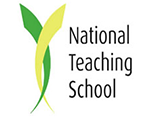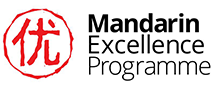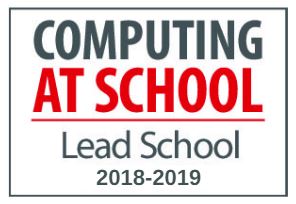History
Why study History?
History is a subject which develops thinking skills (reasoning and evaluation; thinking creatively; enquiry and information processing). Because of this, it is really useful and these skills will help you make real progress in your other subjects. Employers and colleges and universities are impressed with history qualifications because they know that someone with History A level will be able to think carefully and quickly about a range of issues, as well as being able to support what they say effectively and work efficiently and independently.
But History is not just a valuable subject because of the skills you gain, but also because of the topics you study. At Fortismere, we study a range of different time periods and countries, which are not only interesting in themselves, but also help you to see the world in which you live with a much wider view. This means that you can understand some of the issues in our current society in more depth, e.g. religious and political terrorism, or human rights, as well as helping you to become a more tolerant and interesting person.
History at Fortismere is challenging, partly because the staff who teach you will have high expectations of you and themselves. We support students who wish to apply for History at university, offering mock interviews for students who are likely to face them, as well as extra UCAS guidance.
What will I study?
Unit 1: The Tudors: England, 1485-1603 - This course is a study in breadth of issues of change, continuity, cause and consequence in this period. It considers how effective the Tudors were in restoring and developing the powers of the monarchy, the causes and results of repeated changes to religion, the degree to which the monarchy was threatened by opposition and rebellion, the ways in which England’s relations with foreign powers changed, and the role of key individuals and groups in the period.
Year 12: Consolidation of the Tudor Dynasty, England 1485-1547
- Monarchy restored and enhanced, 1485–1529 - Henry VII and Henry VII
- Revolution in Church and State, 1529–1547 - Henry VIII
Year 13: Turmoil and Triumph, England 1547-1603
- Religious and political instability and consolidation, 1547–1570 - Edward VI, Mary I and Elizabeth I
- Gloriana and decline, 1571–1603 - Elizabeth I
Why have we chosen this unit?
- It’s interesting! Despite it being a breadth course, you will learn about lots of interesting events and scandals, such as Elizabeth I and her rumoured affair with Robert Dudley, and whether Mary I deserves her reputation as ‘Bloody Mary’.
- It’s important! The Break with Rome (under Henry VIII) was arguably one of the most important events in English history and still affects England today - without it, England might still be a Catholic country. We don’t just learn about Henry VIII and his six wives, but why he wanted an annulment (divorce) from his first wife, and why it was so important. We also learn about other significant events that had a lasting impact, such as Elizabeth I and the origins of the British Empire.
Unit 2: Revolution and Dictatorship: Russia and the Soviet Union, 1917–1953 - This course is a study in depth of the coming and practice of communism in Russia. It explores concepts such as Marxism, communism, Leninism, and Stalinism, ideological control and dictatorship. It also enables students to consider issues of political authority, the power of individuals and the inter-relationship of governmental and economic and social change.
Year 12: The Russian Revolution and the Rise of Stalin, 1917–1929
- Dissent and Revolution, 1917
- Bolshevik consolidation, 1917–1924
- Stalin’s rise to power, 1924–1929
Year 13: Stalin’s Rule, 1929–1953
- Economy and society, 1929–1941
- Stalinism, politics and control, 1929–1941
- The Great Patriotic War and Stalin’s Dictatorship, 1941–1953
Unit 3: Coursework The United States of America, 1863-1992 - This course is an investigation of a historical issue focusing on a range of topics from the United States from 1863 to 1992. It is studied in the summer term of Year 12. It culminates in a 4,500 word essay exploring a thematic question set by students individually. In constructing this students use both primary sources and historical interpretations in order to develop their own argument. Past questions have included:
- In the context of the years 1865 to 1984, to what extent did the role and authority of the President of the United States change?
- ‘The advancement of the position of women within the United States during the years 1890 to 1982 has been predominantly due to broader social changes rather than the actions of women themselves.’ Assess the validity of this view.
- ‘America’s foreign policy was driven predominantly by national self-interest between the years 1903 and 1999.’ Assess the validity of this view.
How will I study?
The lessons will be taught by subject specialists and will be a mixture of teacher-led activity, reading and discussion work as well as student presentations/seminars. Students who take responsibility for their own learning do better than those who expect to be spoon-fed. We’ll help you, but not do all the work for you! You will also have the opportunity to attend a number of conferences on specific topics.




